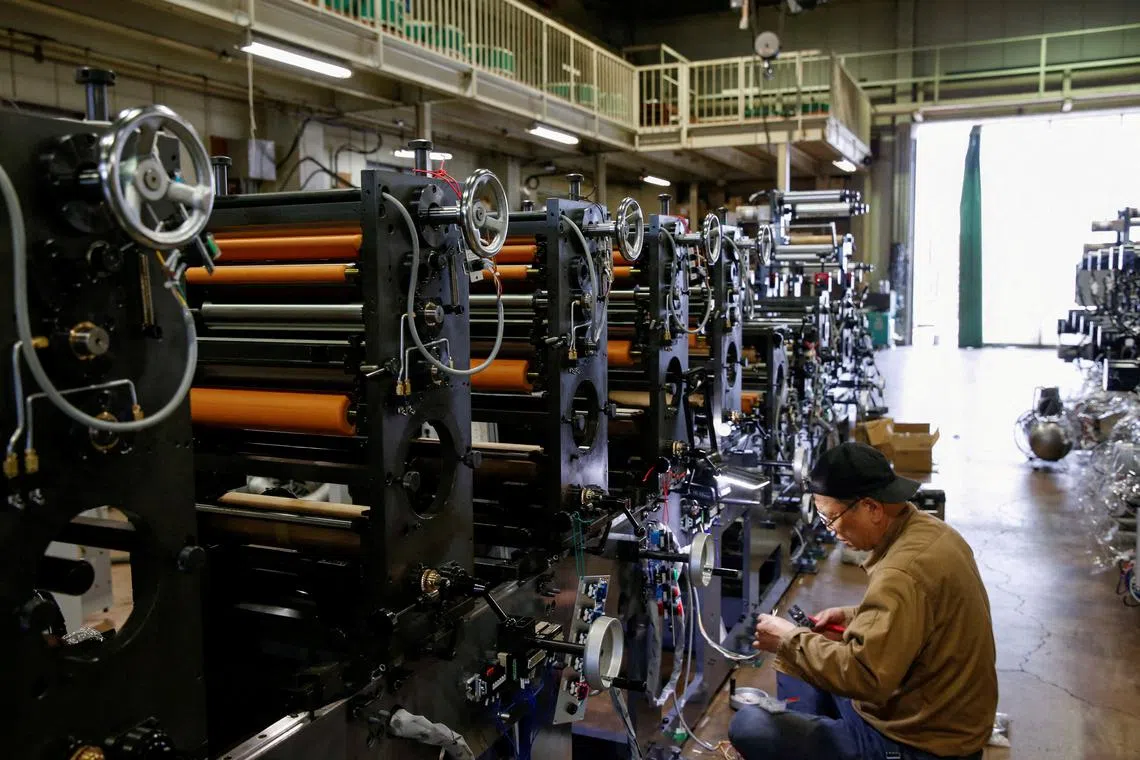Japan factory activity contracts for fifth month, services sees fastest growth since 2013
Sign up now: Get ST's newsletters delivered to your inbox

Both factory output and new orders declined for a ninth straight month, but the pace of contraction eased from February.
PHOTO: REUTERS
Follow topic:
TOKYO - Japan’s manufacturing activity contracted for a fifth straight month in March as output and new orders remained under pressure, a survey showed on Friday, suggesting the economic recovery is fragile as global demand slows.
However, service sector activity expanded for a seventh straight month and rose at the fastest pace in over nine years as the squeeze from the Covid-19 pandemic eased.
The au Jibun Bank flash Japan manufacturing purchasing managers’ index (PMI) stood at a seasonally adjusted 48.6 in March, from a final 47.7 in the previous month.
The index remained below the 50-level that separates contraction from expansion for a fifth straight month in March.
“Manufacturing firms signalled further downbeat figures at the end of the first quarter, with sustained reductions in both output and new orders,” said Mr Usamah Bhatti, economist at S&P Global Market Intelligence, which compiles the survey.
Both factory output and new orders declined for a ninth straight month, but the pace of contraction eased from February, the sub-index data showed.
The Reuters Tankan survey on Thursday showed big Japanese manufacturers remained pessimistic about business conditions for a third straight month in March, reflecting worries about slowing global growth that could hurt the country’s export engine.
In contrast, service sector activity growth was solid as the return of Chinese tourists boosted demand.
The au Jibun Bank flash services PMI rose to 54.2 seasonally adjusted in March from the previous month’s 54.0, the fastest pace since October 2013.
“The lifting of remaining Covid-19 restrictions
Inbound tourism has been a bright spot as the yen’s decline boosts the spending power of foreign travellers, while high inflation continues to weigh on consumption by domestic shoppers.
The government announced this week it will spend more than 2 trillion yen (S$20.4 billion) to help households and companies cope with rising costs further. REUTERS, BLOOMBERG

